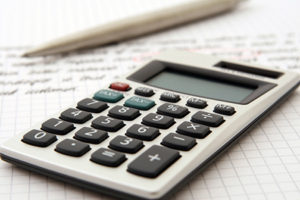
What You Need to Know about Pre and Post-Assessment Tax Reviews
What is a Pre or Post-Assessment Tax Review?
A Pre or Post-Assessment Tax Review is a request from the Canada Revenue Agency (CRA) for documents to support the tax deductions and credits claimed on your personal tax return.
Why can’t my receipts be submitted to CRA when my return is filed?
CRA does not have the resources to review the supporting documents for all taxpayers; therefore, they perform reviews and request supporting documents on a small percentage of submissions to discourage tax avoidance in a more efficient way. There are very limited situations where supporting documents will be attached to your tax return.
CRA has selected me for a tax review, now what?
You will have to provide the support documents CRA requested. Although this can sometimes be straightforward, responses often require technical explanations that show CRA how calculations were made for the specific amounts claimed.
Why is my return being reviewed?
It is estimated that 10% to 30% of tax returns are reviewed for one or more items each year. In most cases, taxpayers are selected at random because CRA has chosen to examine a particular type of deduction or credit that year. However, a deduction or credit claim that is high or atypical can also trigger a review, such as claiming a large amount of medical expenses in one year.
How should I prepare?
Ideally you should start preparing before filing your return:
- Inform your accountant of any missing documents, as well as amounts or situations you are unsure of.
- Keep your documents handy. If possible, scan them and keep secured electronic copies. Many accountants accept digital files from clients as CRA doesn’t require submission of original documents.
Should I hire someone to handle my tax review?
You aren’t required to hire a professional accountant, but the issues involved in responding to a review often entail technical accounting and tax knowledge. Having a chartered professional accountant (CPA) prepare your response can increase your chance of receiving a favourable decision. Their services typically include an analysis of your tax review, assembly of the appropriate response documents, and sufficient time to follow up with CRA. If the CPA responding to your tax review is the same person who prepared your return, the fees to do so can often be waived under a service like Audit Shield (for post-assessment reviews only).
What if CRA doesn’t allow my claims?
CRA will issue a notice of assessment or reassessment explaining your revised amount of taxes owing or the reduction in your refund. You will need to make an additional payment if you already paid your taxes owing. If you received a refund and it has been reduced due to the reassessment, you will need to return the difference to CRA.
Aren’t accountants supposed to know which claims are eligible?
There are certain areas of tax preparation that require technical knowledge and interpretation of facts. Each professional uses his or her judgment as the rules apply to each taxpayer, and it is possible that CRA may disagree with your accountant. In such cases, you can pursue an appeal of CRA’s decision through the objection and/or tax court system.
How can I avoid being reviewed in the future?
Though you can’t avoid being reviewed, you can be prepared by ensuring you keep your documents organized and accessible. In addition, having a professional accountant prepare your tax return and respond to a tax review can save you money, time and potentially serious consequences.
 Loren Nancke is a tax and accounting firm with deep roots—over 30 years in Western Canada—and an innovative approach to serving individuals and small businesses in BC and Alberta. Learn more about our tax consulting and accounting services for business owners and individuals.
Loren Nancke is a tax and accounting firm with deep roots—over 30 years in Western Canada—and an innovative approach to serving individuals and small businesses in BC and Alberta. Learn more about our tax consulting and accounting services for business owners and individuals.

